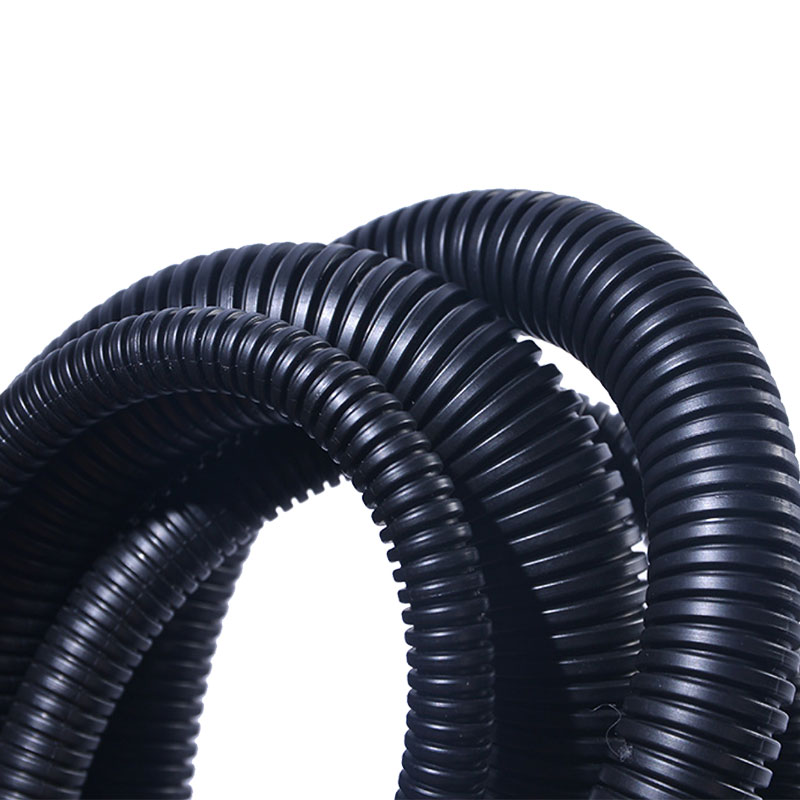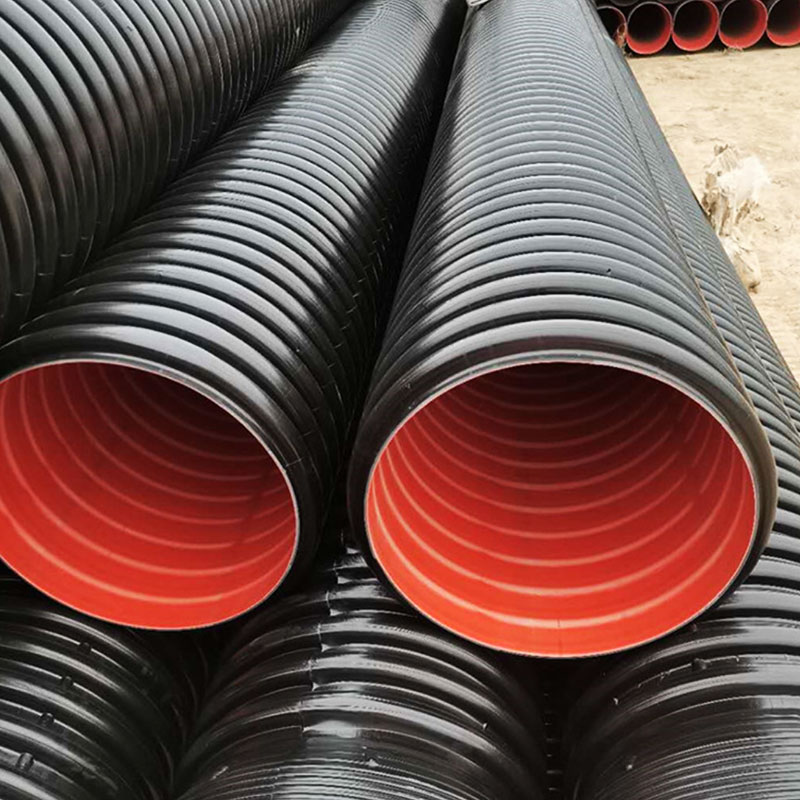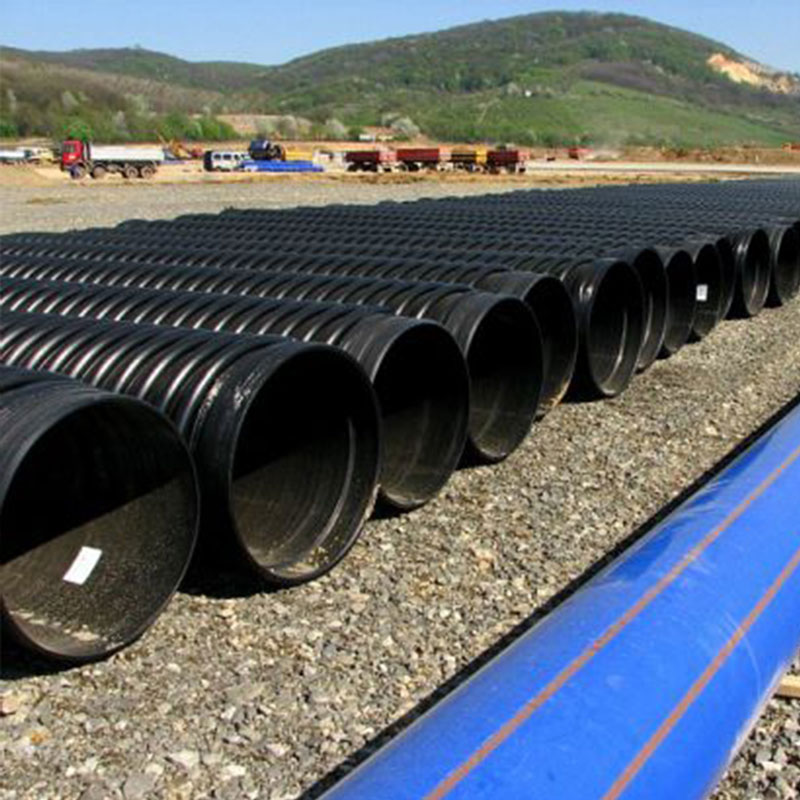Dans la construction urbaine moderne, Les systèmes de canalisations sont un élément indispensable. Parmi ceux-ci, tuyaux ondulés, avec leur structure et leurs avantages uniques, sont largement utilisés dans divers scénarios. Aujourd’hui, nous nous penchons sur les détails des tuyaux ondulés en PVC et en PEHD.
Tuyaux ondulés en PVC
Chlorure de polyvinyle, abréviation de Polyvinyl Chloride, est une matière plastique courante. Les tuyaux ondulés en PVC sont fabriqués principalement à partir de chlorure de polyvinyle, Présentant une excellente résistance à la corrosion, résistance à l’abrasion, et résistance aux chocs, ce qui les rend largement utilisés dans de nombreuses applications. Les dimensions des tuyaux ondulés en PVC sont diversifiés, permettant une sélection basée sur les besoins réels. Par exemple, 24-pouces tubes ondulés et 24-pouces tuyaux de drainage ondulés sont deux tailles courantes. De plus, Tuyaux ondulés en PVC sont des produits populaires, leur flexibilité les rend plus pratiques dans les situations nécessitant de se plier.

Tuyaux ondulés en PEHD
HDPE est l’abréviation de polyéthylène haute densité, un polymère. Tuyaux ondulés en PEHD sont fabriqués en polyéthylène haute densité, offrant une résistance plus élevée et une meilleure résistance à la fissuration sous contrainte environnementale que les tuyaux ondulés en PVC, ce qui les rend plus adaptés à certains environnements, comme les zones sujettes aux tremblements de terre.
Les raccords pour les tuyaux ondulés en PEHD sont également variés, y compris Tuyaux ondulés à double paroi ou Tuyaux ondulés doubles. Ces raccords peuvent être sélectionnés en fonction des exigences spécifiques du projet pour répondre à différents besoins d’ingénierie.

Applications des tuyaux ondulés en PVC et en PEHD
Les tuyaux ondulés en PVC et en PEHD ont tous deux leurs domaines d’application uniques. Par exemple, Les tuyaux de drainage ondulés en PVC sont largement utilisés dans les systèmes de drainage urbains, où leur bonne résistance à la corrosion et à l’abrasion garantit une durabilité à long terme. Tuyaux ondulés en PEHD, D’un autre côté, sont largement utilisés dans les projets nécessitant une résistance élevée et une excellente résistance à la fissuration sous contrainte environnementale.
Comparaison des soufflets
Alors que les tuyaux en PVC et en PEHD sont des types de tuyaux ondulés, Ils diffèrent considérablement par le matériau, performance, et l’application. Tuyaux ondulés en PVC sont fabriqués à partir de chlorure de polyvinyle, tandis que les tuyaux ondulés en PEHD sont fabriqués à partir de polyéthylène haute densité. Ces différences de matériaux affectent directement les tuyaux’ performance.
En termes de performance, Les tuyaux ondulés en PVC offrent une bonne résistance à la corrosion, résistance à l’abrasion, et résistance aux chocs. Tuyaux ondulés en PEHD, toutefois, ont une résistance plus élevée et une meilleure résistance à la fissuration sous contrainte environnementale. Cela signifie que différents types de tuyaux peuvent être nécessaires pour différents scénarios d’application.
En application, Les tubes ondulés en PVC et en PEHD ont chacun leurs domaines d’application spécifiques. Par exemple, Tuyaux de drainage ondulés en PVC sont couramment utilisés dans les systèmes de drainage des villes, pendant que Tubes ondulés à double paroi en PEHD sont souvent utilisés dans les produits chimiques, électrique, et autres domaines.

En résumé, Les tuyaux ondulés en PVC et en PEHD ont chacun leurs avantages, et le choix entre les deux devrait être basé sur des besoins spécifiques et des conditions environnementales. Quel que soit le choix, Assurer la qualité des tuyaux est crucial pour le fonctionnement stable du système de canalisations.
Dans les systèmes de canalisations, les tuyaux ondulés en PVC et en PEHD jouent tous deux un rôle essentiel. La compréhension des caractéristiques et des applications de ces tuyaux nous permet de mieux sélectionner les produits appropriés pour répondre à nos besoins en ingénierie. De plus, L’attention portée à la qualité et à l’entretien des tuyaux est essentielle pour assurer le fonctionnement stable du système de canalisations, Fournir une base solide pour la construction urbaine.
 Zhongtong HDPE PIPE Système Fournisseur Professionnel
Zhongtong HDPE PIPE Système Fournisseur Professionnel